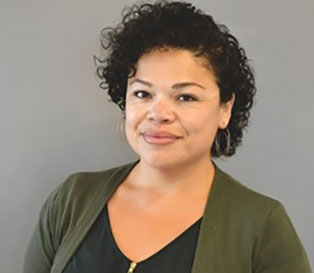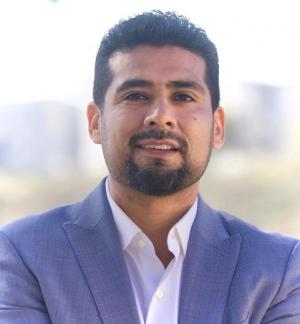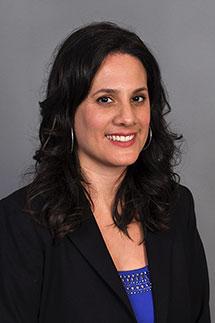Event Date:
Saturday, April 24, 2021 - 11:15am to Thursday, November 25, 2021 - 11:15am
2021 MIGRATION INITIATIVE RESEARCH GRANT WINNERS
PI's: Erika Arenas (Sociology) and San Juanita Garcia (Chicano and Chicana Studies), “UndocuAging in Times of COVID 19: Stress, Mental Health, and Resistant Strategies Among Community Organizers and Older Mexican Undocumented Migrants.”

The COVID-19 pandemic has brought into the spotlight the magnitude of health inequities that exist in the U.S., where Latinx populations are twice as likely to die compared to whites. In this study we will examine how older undocumented Mexican adults -a population that is often left out of the undocumented narrative and that is bearing the brunt of the pandemic, are confronting COVID-19. The objective of this pilot study is threefold: (1) to investigate the role and challenges of community organizations as care providers for older undocumented Mexican adults during a pandemic, (2) to investigate whether the COVID-19 pandemic has exacerbated intersectional stigmas -associated with legal status, race, ethnicity, age, and gender- on the stress and mental
health experienced by this population, and (3) to examine the strategies and resistant mechanisms that this population has adopted during this pandemic, as well as, which are the strategies adopted by the community organizations that provide care for them. Using a sequential mixed-methods approach, we will use netnographic techniques to systematically identify community organizations and analyze the resources they provide, and we will also design survey instruments, based on focus groups, to better understand how the pandemic has exacerbated the consequences, in terms of mental health, of intersectional stigmas. This pilot study is part of a larger research agenda that seeks to understand how intersectional stigma shapes life circumstances so as to induce stress and compromise mental health in an aging (55 years and older) undocumented older population.
PI's:Susan Cassels (Geography) and Alison Cerezo (Counseling, Clinical, and School Psychology), “Exploring Social and Structural Determinants of HIV Risk among Latinx Immigrant MSM.”


Due to multiple, competing stressors stemming from sexual orientation, ethnicity, and immigration status, Latinx LGBTQ (lesbian, gay, bisexual, transgender and queer) immigrants face disparately negative risk for social and health disparities. Urban, non-White men who have sex with men (MSM) remain at especially high risk for HIV in the United States, even when HIV incidence among other populations is falling. Partly in response to persistent racial and ethnic disparities in HIV, the role of geographic mobility, neighborhood exposures, and other ecological contexts in HIV risk have been receiving renewed attention. This project will examine how socio-ecological factors, mental health factors, and stigma experiences impact health behaviors and health outcomes, such as engaging in unprotected anal intercourse, among Latinx immigrant MSM in Southern California. We will qualitatively analyze semi-structured interviews from 16 Mexican and Central American migrant MSM using grounded theory. These findings will provide the preliminary data to support a highly competitive proposal to the National Institute on Minority Health and Health Disparities (NIMHD) for an R01 to develop and test community-based prevention and clinical interventions to improve sexual health on a cohort of mobile, Latinx immigrant MSM in Southern California. Drs.Cassels (Geography) and Cerezo (Counseling, Clinical & School Psychology) share expertise in immigrant LGBTQ health, articularly substance use and HIV. Their interdisciplinary collaboration aims to consider how geographical space and its relation to social networks and healthcare access play a key role in psychological and HIV health disparities.

PI Victor Rios (Sociology), “Latinx Immigrant and Indigenous Health on California’s Central Coast: Contesting a Culture of Fear.”
Anti-immigrant policies undermine the health and wellbeing of Latinx communities, who also face white supremacy and xenophobic violence. For many Latinx immigrants who are also Indigenous, these risk factors overlap with exposure to colonial trauma. Further, the COVID-19 pandemic has exacerbated existing structural vulnerabilities in creating dangerous health conditions for marginalized groups. Given these realities, there is a pressing need for academic leadership to move beyond documenting health disparities to utilizing this knowledge toward ending racism, settler-colonialism, and their negative impacts on immigrant communities’ health. This project draws from a decolonial-inspired ethnography of Latinx Immigrant and Indigenous groups on California’s Central Coast. The first aim is to demonstrate how news media reproduces a culture of fear around immigration policies. This fear spreads throughout immigrant communities and encourages negative health behaviors. However, communities are not passive recipients of threatening discourses. Advocacy for immigrant health equity is common within formal immigrant rights organizations and through cross-sector collaboration and community leadership. These groups show a high level of resilience, both prior to and during the COVID-19 pandemic. The principles of this organizing can be explained through the concept “movement pandemic adaptability,” which generalizes this process in terms of organizational strategies for the pandemic response and recovery efforts. This project will directly translate research knowledge to greater awareness and effective policy responses to the stark health inequities facing Latinx Immigrant and Indigenous groups. Findings will be published open access in journal articles and shared directly with community leaders through culturally responsive knowledge sharing strategies.

PI Rebeca Mireles-Rios (Education), “Experiences of Essential Migrant Workers.”
This pilot project focuses on community-based participatory research (CBPR) to document the experiences of thirty-five migrant “essential workers,” their community responses, and their advocacy efforts in Santa Barbara County in response to the COVID-19 Pandemic through in-depth interviews. In the case of migrant essential workers, their intersectionality of migrant status, minority workers, and often low socioeconomic status means that it is especially important that the new, nuanced implications of the COVID-19 pandemic are understood, so that strategies for addressing the new challenges experienced by this vulnerable population are appropriate. Our partnership with the Latinx and Indigenous Migrant COVID-19 Response Task Force (LIMCRTF) will help support and guide our work through the democratic production of knowledge, the lived experiences of those most vulnerable to infection, and most impacted by COVID-19, such as migrant farm workers, to the many policy decisions that will be made for years to come. This research is significant because we need a better understanding of the vulnerabilities experienced by this group in this new disaster context, so we can contribute to policy that addresses the new population health implications, including the impact of work and the COVID-19 Pandemic on migrant essential workers’ mental health.
 PI Daina Sanchez (Chicano and Chicana Studies), “Indigenous Latinx Student Organizing on College Campuses.”
PI Daina Sanchez (Chicano and Chicana Studies), “Indigenous Latinx Student Organizing on College Campuses.” Through ethnographic research with Indigenous Latinx students in identity-based student organizations, this project examines place-making and community-building among Indigenous Latinx college students. The research team will conduct research with the Collective of Pueblos Originarios in Diaspora (CPOD), an Indigenous Latinx student organization at the University of California, Santa Barbara, to examine how and why Indigenous Latinx students seek community with members of other Indigenous Latinx diasporas. Studying the experiences of Indigenous Latinx is central to understanding how displaced peoples organize within and outside of the millennial practices that have anchored and incorporated Indigenous peoples to indigenous communities. We hypothesize that Indigenous Latinx college students seek out or create community because the spaces that exist on campus, including student organizations, cultural centers, and academic departments, are not representative of their existing realities. Our focus on the Indigenous Latinx college experience is important because these individuals are likely living away from their parents’ homes and diasporic Indigenous communities for the first time; we hypothesize that this may motivate students to search for or build Indigenous Latinx spaces. The questions framing this research are: How do Indigenous Latinx organize on college campuses around their multiple identities (i.e. ethnoracial, community, national, and legal)? What kinds of opportunities and challenges do Indigenous Latinx college students encounter at Hispanic-Serving Institutions and how can HSIs meet the unique needs of Indigenous Latinx? How does engaging in student activism and organizing influence the identity formation and feelings of belonging of Indigenous Latinx college students?

PI Carolyn Sattin-Bajaj (Education), “Preparing Teachers to Educate Immigrant-Origin Youth: An Exploration of the Role of Coursework in California’s Teacher Education Programs.”
There is growing evidence of the profound, direct impact of federal immigration policies on students in schools. In light of the changing demographic composition of U.S. schools, it has never been more important for educators to be prepared to effectively educate students whose lives may be deeply affected by immigration policies and migration. This project explores the extent and ways in which six teacher education programs in California cover migration-related topics such as migration experiences, immigration policies, immigrants’ rights, immigration enforcement, growing up in immigrant families, and the implications of migration and immigration policies for students in U.S. schools today in their programs. This study builds on a curricular audit, funded by the UCSB Academic Senate, which analyzes the syllabi and course materials for all of the required and elective coursework and the capstone projects that comprise the teacher credential and Masters programs at select University of California and California State University campuses. Funding from the Migration Initiative will expand the study to include a set of interviews with program directors and course instructors about the ways that migration is addressed in teacher preparation programs (TPPs) and the rationale(s) for including (or excluding) the topic of migration in pre-service teacher education courses. A study that begins to answer questions about how some of the most prestigious teacher preparation programs in the country are preparing teachers to competently educate immigrant-origin students stands to contribute valuable new empirical evidence to discussions about the present and future of teacher education.
April 26, 2021 - 11:18am

